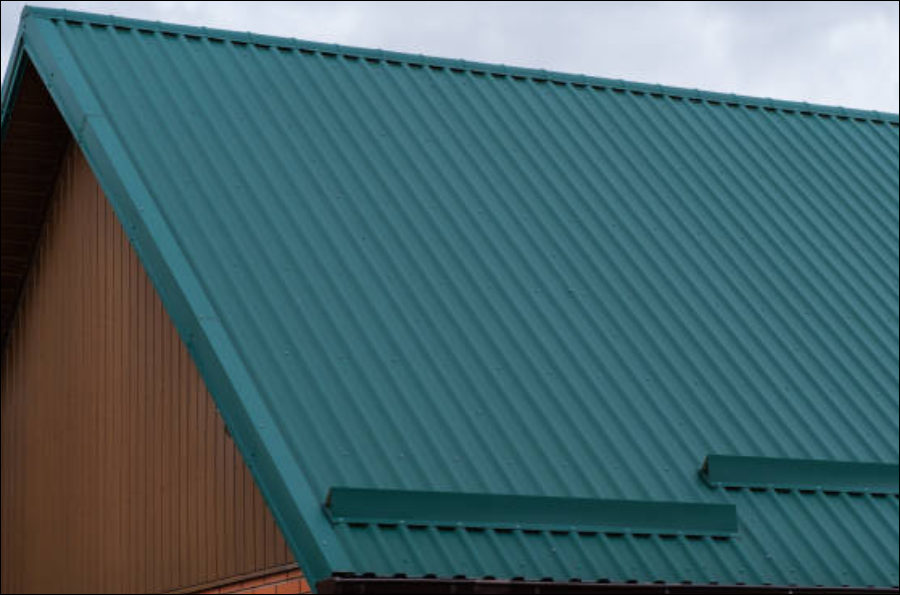When it comes to protecting your home, the roof is one of the most critical components. Selecting the right roofing material not only enhances the aesthetic appeal of your home but also ensures long-term durability and energy efficiency. In this guide, Tried and True Roofing will explore the various residential roofing materials available, helping you make an informed decision that aligns with your needs, budget, and environmental considerations.
Asphalt Shingles: The Popular Choice
Asphalt shingles are the most commonly used roofing material in the United States, and for good reason. These shingles are affordable, easy to install, and come in a wide range of colors to match any home style. Typically, asphalt shingles last between 20 to 25 years, making them a cost-effective choice for many homeowners.
Pros of Asphalt Shingles:
- Affordability: Asphalt shingles are one of the most economical roofing options available.
- Variety: Available in numerous colors and styles to suit different architectural designs.
- Ease of Installation: Simple to install, which reduces labor costs.
- Durability: Good resistance to wind and fire, especially when regularly maintained.
Cons of Asphalt Shingles:
- Susceptibility to Weather: Rapid temperature fluctuations can cause cracking.
- Lifespan: While durable, they do not last as long as some other materials.
Metal Roofing: Durable and Energy Efficient
Metal roofing is gaining popularity due to its longevity and energy efficiency. Available in panels or shingles, metal roofing is more expensive upfront but can last up to 70 years with proper maintenance. Metal roofing reflects sunlight, which can reduce cooling costs during hot summers, a significant advantage for eco-friendly roofing.
Pros of Metal Roofing:
- Longevity: Can last 50 years or more, making it a long-term investment.
- Energy Efficiency: Reflects heat, reducing cooling costs.
- Fire Resistance: Most metal roofs have a Class A fire rating.
- Eco-Friendly: Often made from recycled materials and fully recyclable at the end of its life.
Cons of Metal Roofing:
- Cost: Higher initial installation costs.
- Noise: Can be noisy during rainstorms unless proper insulation is installed.
- Dent Resistance: Prone to dents from hail or falling debris.
In areas like Colorado, where weather can be unpredictable, metal roofing in Denver CO has become a popular choice. Companies like Tried and True Roofing offer expertise in this area, ensuring that your metal roof installation meets the highest standards.
Slate Roofing: Classic and Timeless
For those seeking a blend of durability and elegance, slate roofing is an excellent option. Slate roofs are made from natural stone, giving homes a distinctive, classic appearance. This material can last up to 100 years, making it one of the most durable options available.
Pros of Slate Roofing:
- Aesthetic Appeal: Offers a timeless, elegant look.
- Durability: Extremely long-lasting, with minimal maintenance required.
- Fire Resistance: Naturally fire-resistant material.
- Eco-Friendly: Made from natural stone, requiring no chemical processing.
Cons of Slate Roofing:
- Weight: Heavy, often requiring additional structural support.
- Cost: One of the most expensive roofing materials.
- Installation: Requires skilled labor for proper installation, adding to the cost.
Tile Roofing: Stylish and Long-Lasting
Tile roofing, made from clay or concrete, is a durable and aesthetically pleasing option that is particularly popular in warmer climates. Tiles can last over 50 years and are available in a variety of colors and styles, making them ideal for homes aiming to capture a Mediterranean or Spanish look.
Pros of Tile Roofing:
- Durability: Long-lasting with minimal maintenance.
- Fire Resistance: Offers good protection against fire.
- Aesthetic Versatility: Available in many styles and colors.
Cons of Tile Roofing:
- Weight: Similar to slate, tiles are heavy and may require additional structural support.
- Fragility: Can crack if walked on, requiring careful maintenance.
Flat Roofing: Practical Solutions for Modern Homes
Flat roofs, though more common in commercial buildings, are also used in residential settings. They require careful installation to prevent water leaks. The most common flat roofing materials include Modified Bitumen, TPO, and EPDM.
Pros of Flat Roofing:
- Cost-Effective: Generally cheaper than pitched roofs.
- Space Utilization: Allows for rooftop gardens or solar panel installations.
Cons of Flat Roofing:
- Maintenance: Requires regular inspections to prevent leaks.
- Drainage Issues: Flat roofs are prone to water pooling, which can lead to leaks.
Cedar Shake Roofing: Natural Beauty
Cedar shakes provide a natural, rustic appearance, making them an excellent choice for homes surrounded by nature. When properly treated, cedar shakes can last up to 30 years and offer good insulation and weather resistance.
Pros of Cedar Shake Roofing:
- Aesthetic Appeal: Offers a unique, natural look.
- Insulation: Provides good thermal insulation.
- Eco-Friendly: Made from natural wood, which is biodegradable.
Cons of Cedar Shake Roofing:
- Maintenance: Requires regular treatment to prevent rot and insect damage.
- Fire Resistance: Less fire-resistant than other materials unless specially treated.
Conclusion
Choosing the right roofing material for your home involves considering various factors, including cost, durability, aesthetic appeal, and environmental impact. Whether you opt for the affordability of asphalt shingles, the durability of Denver metal roofing, or the timeless appeal of slate, it is essential to work with experienced professionals to ensure a quality installation. Tried and True Roofing is committed to helping homeowners in Denver make the best roofing choices, offering expert installation and maintenance services tailored to meet your specific needs.
By understanding the unique benefits and drawbacks of each roofing material, you can make an informed decision that ensures your home is well-protected and visually appealing for years to come.
